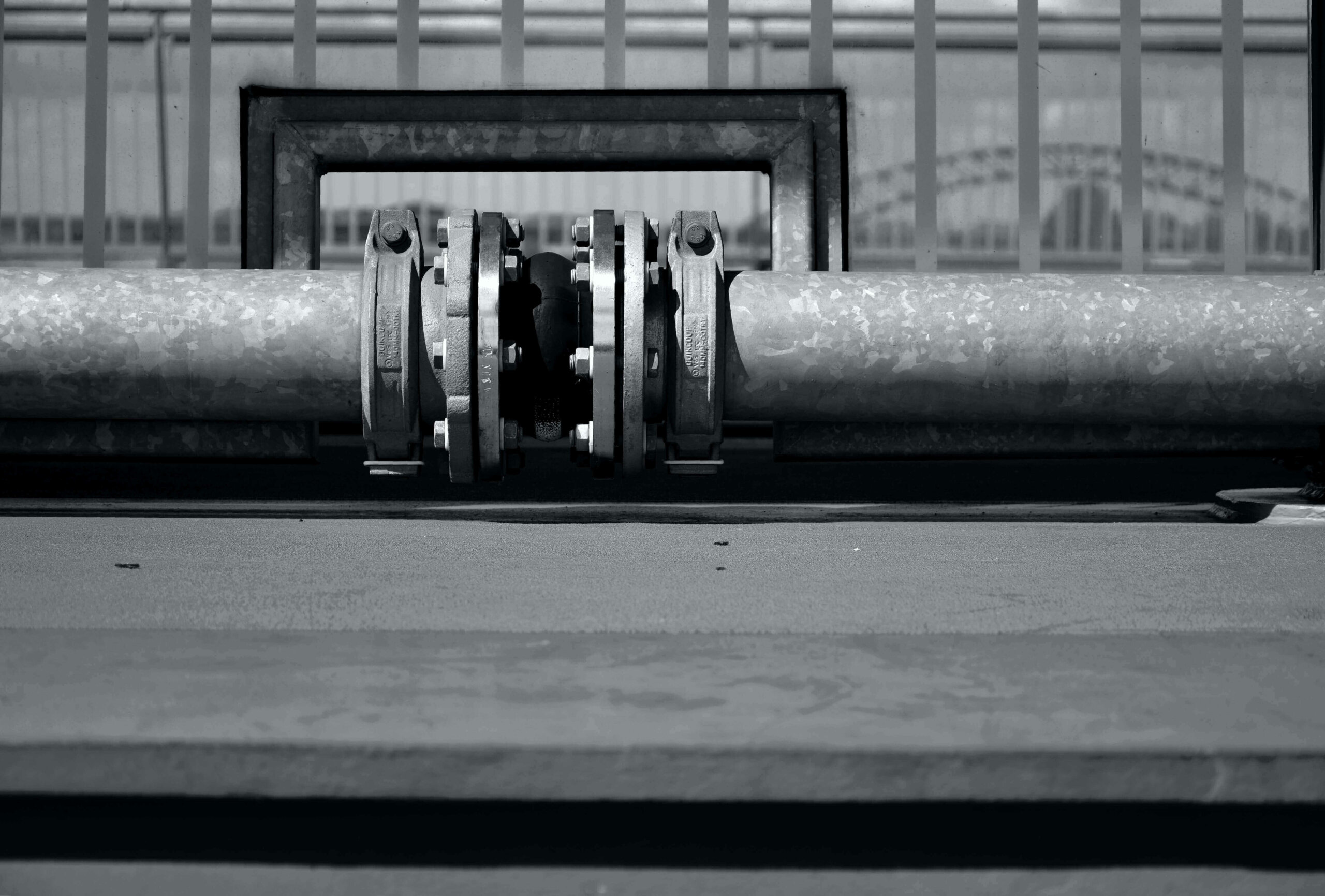Gas lines serve as your home’s lifeline, providing the fuel necessary for heating, cooking, and other essential activities. Thus, understanding and complying with depth requirements is essential. Proper installation and burial of these gas lines not only provide safety against potential hazards but also ensures compliance with local regulations.
In the greater Cincinnati and Northern Kentucky area, homeowners, property owners, and contractors rely on Jolly Plumbing, Drains, Heating, & Air’s expertise on buried gas lines. For over 40 years, we have been serving these communities with a commitment to safety, compliance, and customer satisfaction. Read on to learn more about buried gas line depth requirements, how deep gas lines are buried, and why you should choose us as your home service partner.
The Importance of Proper Gas Line Installation
Proper gas line burial prevents accidents and ensures the safety of everyone in and around your property. One of the primary risks associated with improper gas line burial is accidental damage. If the burial is too shallow, the gas lines can be easily scraped by landscaping equipment, construction activities, or even natural shifts in the ground. This damage can lead to gas leaks, fires, or even explosions.
To avoid these risks, it is vital to comply with local codes and regulations regarding gas line installation. These codes are designed to ensure safe practices and protect both homeowners and the community at large. Failure to adhere to these regulations can result in fines, legal consequences, and potential liability in case of accidents.
Factors Affecting Gas Line Depth Requirements
There are several factors that affect the gas line depth requirements of a property or structure.
Soil Type and Composition
The type and composition of the soil play a significant role in determining the depth requirements for buried gas lines. Different soil types, such as clay, sand, and loam, have varying characteristics that can affect the stability and corrosion resistance of gas lines. For instance, clay soils tend to retain moisture and expand when wet, potentially putting pressure on the gas lines. Meanwhile, sandy soils may require deeper burial to ensure stability.
Soil composition likewise affects the corrosiveness of the environment surrounding the gas lines. Some soils contain higher levels of acidity or corrosive elements, which can lead to faster degradation of the gas line materials.
Frost Line and Freeze-thaw Cycles
The frost line refers to the maximum depth at which the ground freezes during the coldest winter months. It is a crucial consideration when determining gas line burial depth. In regions with freezing temperatures, burying gas lines below the frost line helps protect them from frost heaving. Frost heaving occurs when water in the soil freezes and expands, causing the ground to rise and damage the gas lines.
Freeze-thaw cycles, common in colder climates, can also impact the stability of buried gas lines. The repeated expansion and contraction of the soil due to freezing and thawing can cause shifts and movement that may damage shallowly buried gas lines.
Local Building Codes and Regulations
Adhering to local building codes and regulations is essential for gas line installations. Each region may have specific requirements regarding the depth at which gas lines should be buried to ensure safety and compliance.
Common depth requirements for buried gas lines in the greater Cincinnati and Northern Kentucky areas typically range from 12 to 18 inches. However, these requirements can vary based on factors such as soil conditions, frost line depths, and specific municipality regulations.
Thus, to ensure adherence to the local protocols and standards, it is advisable to consult the local authorities or professional gas line service providers. Jolly Plumbing, Drains, Heating, & Air has been a trusted home service company in these areas for several decades. With our extensive knowledge of local regulations, we are well-equipped to handle gas line installations, repairs, and maintenance, all while ensuring compliance and safety.
Digging and Excavation Guidelines
When it comes to digging or excavation projects around your property, it is vital to prioritize the safety of buried gas lines. Taking the necessary precautions can prevent accidents, leaks, and other hazards. Here are some important guidelines to follow.
Call 811 or the Local Utility Company
Before starting any digging project, whether it’s for landscaping, construction, or installing a new fence, make sure to contact 811 or the local utility company. This service is typically free and will help you identify the location of gas lines on your property. By having the gas lines marked, you can proceed with confidence knowing where they are located to avoid accidental impairment.
Use Proper Equipment and Techniques
When excavating near gas lines, use the right equipment and techniques to minimize the risk of damaging them. Avoid using heavy machinery, such as backhoes or excavators, as the force and weight of these machines can easily cause damage. Instead, opt for hand tools or smaller excavation equipment that allows for more precise and controlled digging around the marked gas lines.
Excavate With Care
Take your time and exercise caution during the excavation process. Avoid rushing or applying excessive force when digging near gas lines. Use gentle and controlled movements to prevent unintentional impacts or cuts to the gas lines. Remember that the goal is to expose the lines without causing any harm to both yourself and the structure.
Monitor the Excavation Area
As you excavate, keep a close eye on the area around the gas lines. Look out for signs of damage, such as hissing sounds, escaping gas, or unusual odors. If you suspect a gas leak or damage to the lines, immediately stop the excavation and contact your local utility company for assistance.
Be Mindful of Other Utilities
Gas lines are not the only utilities buried underground. Water pipes, electrical lines, and communication cables may also be present. Take care to avoid damaging these utilities as well. If you’re unsure about the location of other buried utilities, consult with the utility company or hire professional excavation services to ensure safe digging.
By following these digging and excavation guidelines, you can minimize the risk of damaging buried gas lines and other utilities on your property. Remember, safety should always be the top priority when working around gas lines. If you’re uncertain or uncomfortable with the excavation process, consult a professional gas line service provider like Jolly Plumbing, Drains, Heating, & Air.
Professional Gas Line Services by Jolly Plumbing, Drains, Heating, & Air
Jolly Plumbing, Drains, Heating, & Air offers a comprehensive range of gas line services, including installation, repair, and maintenance. Whether you’re planning a new gas line installation for a renovation project or need repairs for an existing line, our team of skilled technicians is equipped to handle the job with precision and efficiency.
One key aspect that sets us apart is our in-depth understanding of the importance of proper depth requirements for buried gas lines. We recognize the importance of adhering to local codes and regulations to ensure safety and avoid legal complications. Thus, we’ll make sure that your gas lines are buried at the appropriate depth to meet regulatory standards.
Moreover, Jolly Plumbing, Drains, Heating, & Air’s commitment to safety goes beyond mere compliance. We prioritize the well-being of our customers and the community by employing best practices in all our gas line services. Our technicians undergo rigorous training and are equipped with the latest tools and equipment, enabling them to meet and exceed your expectations.
Final Thoughts
Understanding the depth requirements for buried gas lines is vital for ensuring safety and compliance. Factors such as soil type, frost line, and local regulations all play a significant role in determining the appropriate burial depth.
By adhering to these requirements and working with trusted professionals like Jolly Plumbing, Drains, Heating, & Air, homeowners and contractors can ensure the safe and reliable installation, repair, and maintenance of gas lines. Contact Jolly Plumbing, Drains, Heating, & Air today for all your gas line service needs in the greater Cincinnati and Northern Kentucky area.



